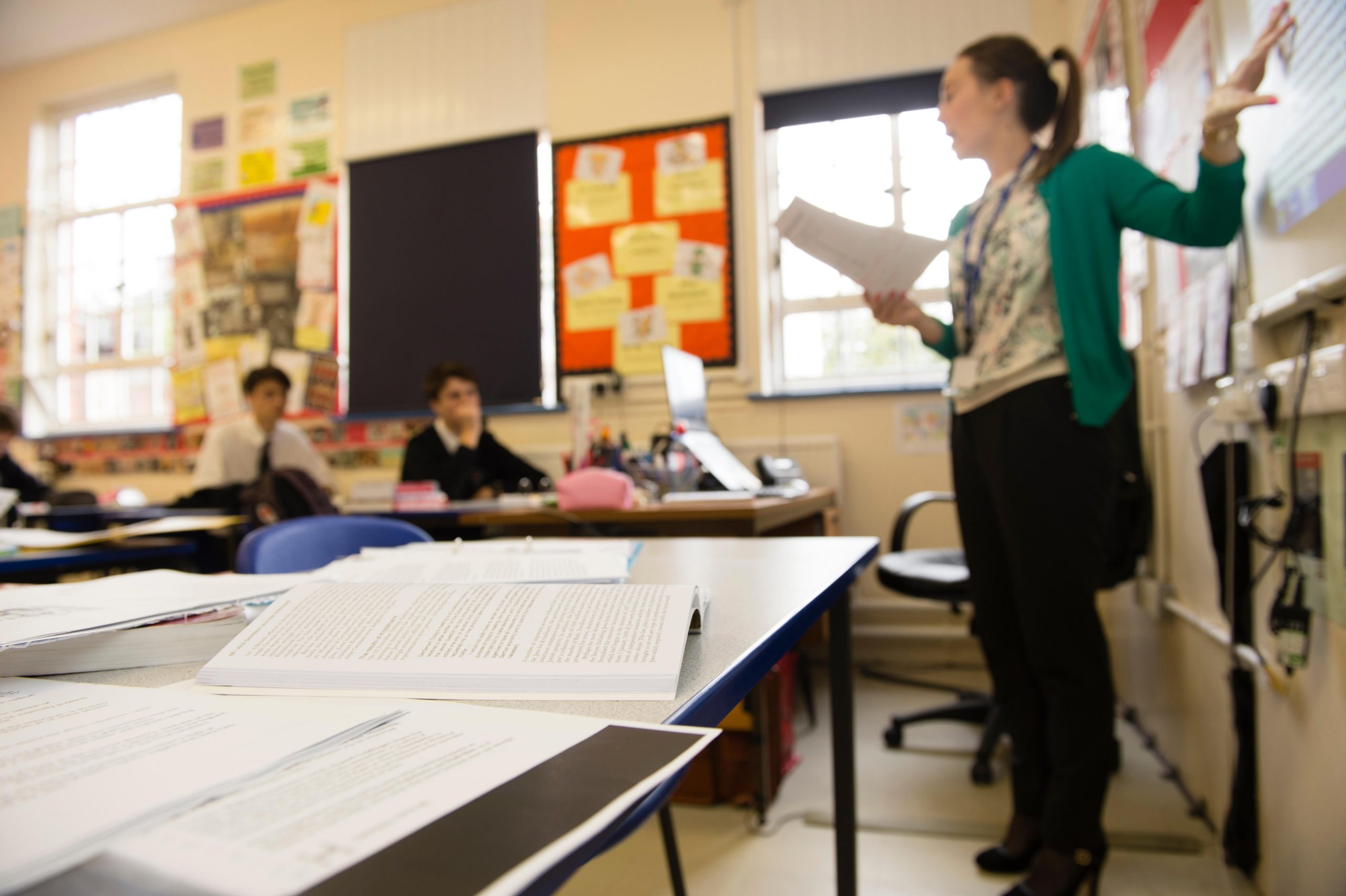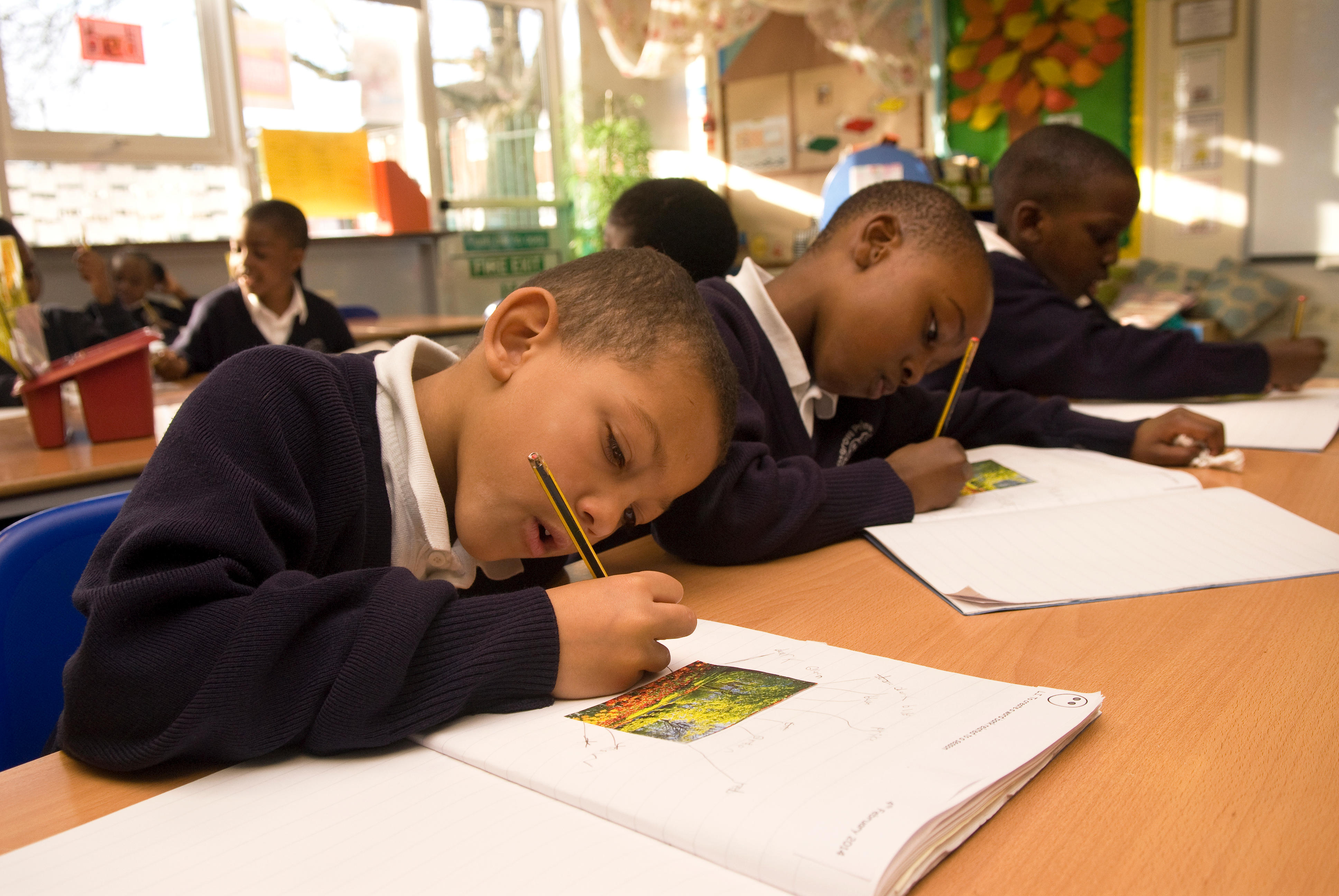Why are schools staying open during the second lockdown?
Why are schools staying open during the second lockdown? Parents, teachers and politicans all have their opinions but what does the government say?


When the second lockdown was announced, the government revealed many of the same measures that were in place in March would be back in play this winter. Apart from one.
Earlier in the year, schools closed and all learning was taken online, but during the second lockdown, schools in England are set to stay open.
The delay in closing schools back in March caused widespread uproar, and now once again schools staying open has become a controversial topic of debate among parents, carers, teachers and politicians alike.
As the number of coronavirus cases across the UK continue to rise at an alarming rate, England’s chief medical officer, Chris Witty has stressed the need for complete, “economically and socially destructive lockdown”. As such, the government rules for the second lockdown in November include the total closure of many hospitality venues such as pubs and restaurants, bars and cafes, along with the temporary closure of all other non-essential businesses.
So why are schools staying open during the lockdown? While many aren’t pleased with the decision, and a teacher’s union has even proposed a motion to have them closed, others emphasise the essential role that schools play in society and the vital need for education during these difficult times:
Why are schools staying open during the lockdown?
There is a concern that if schools close again, children will fall behind in school and their education will suffer - which may affect their futures in the long term. In addition to this, there is also concern for the thousands of parents in England who will struggle to juggle a full time job alongside the demands of homeschooling and childcare if schools were to close again.
In the government’s own words, schools are staying open “to prioritise the wellbeing and long-term futures of our young people”.
GoodtoKnow Newsletter
Parenting advice, hot topics, best buys and family finance tips delivered straight to your inbox.
The government state that schools will not be closing, as “it remains very important for young people to attend, to support their wellbeing and education and help working parents and guardians.”
Ministers understand that by keeping schools open and young people mixing, lockdowns could be extended - but they say it’s worth the risk. As Conservative MP and former minister Tobias Ellwood told Radio Times, “The impact of closing schools is huge. The collateral damage caused from that with parents not being able to go to work is phenomenal. Therefore these tough decisions have to be made.”
However, SAGE scientists have warned that while schools might be staying open for now, if the R-rate doesn't decrease over the next few weeks, then a total lockdown with schools, colleges and even potentially universities closing their doors would have to be considered.

"The big difference to the first lockdown is that schools remain open." Sir Jeremy Farrar, a member of the government's Scientific Advisory Group for Emergencies (SAGE) told BBC One. "Because we have delayed the onset of this lockdown it does make keeping schools open harder. We know that transmission, particularly in secondary schools is high.
"Personally I think this is definitely the lockdown to put in place now but if that transmission, particularly in secondary schools, continues to rise then that may have to be revisited in the next four weeks to get R below one and the epidemic shrinking."
So with this in mind, the government has decided that keeping schools open is not only essential for the emotional and educational wellbeing of millions of students across the country, but that it is also safe to do so.
Safety measure in schools open during lockdown
For the safety of staff and students, certain safety measures will be implemented during the second lockdown to allow schools to stay open. These include:
- Increased hand and respiratory hygiene, i.e. pupils and teachers washing/sanitising hands more often.
- Increased sanitisation and ventilation of classrooms.
- A requirement that people who are ill stay at home.
- Active engagement with NHS Test and Trace by schools.
- Grouping children together in 'bubbles' with the bubble being sent home if one child tests positive for the virus.
- Avoiding contact between different groups or 'bubbles'.
- Arranging classrooms with forward facing desks.
- Staff maintaining distance from pupils and other staff as much as possible.
These are the same as the school safety measures enforced when educational institutions first re-opened their doors again in September. As with the first lockdown though, it's thought that children will not have to wear face masks in the classroom - although it is up to the discretion of the headteacher.
ONS figures reveal that 1% of primary school-aged pupils and 2% of all secondary school students have received a positive test for Covid-19 and since schools opened again in September, half of all English and Northern Irish schools have had to send pupils home due to an infection risk.
What do teachers say about schools staying open?
Teachers, who have been on the frontline of education during the coronavirus, have had a mixed response to schools staying open.
The National Education Union (NEU), which represents 450,000 teachers and education professionals, is calling for schools to close with an exemption for the children of key workers. They are arguing that schools are an “engine for virus transmission.”
“It’s clear from the ONS data that schools are an engine for virus transmission.” Kevin Courtney, joint general secretary of the NEU has said. “It would be self-defeating for the government to impose a national lockdown, whilst ignoring the role of schools as a major contributor to the spread of the virus.
“Such a lockdown would impose pain on the whole community - but not be as effective as it could be if schools were included. Ignoring the role of schools and colleges in the spread of the virus is likely to lead to the need for even longer lockdowns in future.”
Others have pointed out that it’s a little more complicated. “I’m going to put this out there.” A Year 6 teacher wrote on Twitter, “If you agree with schools staying open, that’s ok. If you think schools should close, that’s also ok. If schools were to close, staff will be scared for the children but if schools stay open, staff will be scared for their safety. Be kind.”
For Special Educational Needs (SEN) pupils, going to school during lockdown is essential for stability and routine as well as furthering their education. “Navigating the complex and frightening new world of Covid and lockdown can be even more challenging,” a SEN teacher from London told GoodtoKnow.
“For many, going to school is an integral part of their routine, not only to give them opportunities to learn but to provide them with stability, comfort and help them understand the world around them.”
While some pupils themselves have argued that they need to go to school, for their own wellbeing above all else. As one wrote on Twitter, “To all the people kicking off about schools staying open..for many of us although we may not enjoy the general concept of school, it’s our only distraction from a really dark place..please try to balance cases with peoples mental health guys x”.

Grace Walsh is a health and wellbeing writer, working across the subjects of family, relationships, and LGBT topics, as well as sleep and mental health. A digital journalist with over six years experience as a writer and editor for UK publications, Grace is currently Health Editor for womanandhome.com and has also worked with Cosmopolitan, Red, The i Paper, GoodtoKnow, and more. After graduating from the University of Warwick, she started her career writing about the complexities of sex and relationships, before combining personal hobbies with professional and writing about fitness.